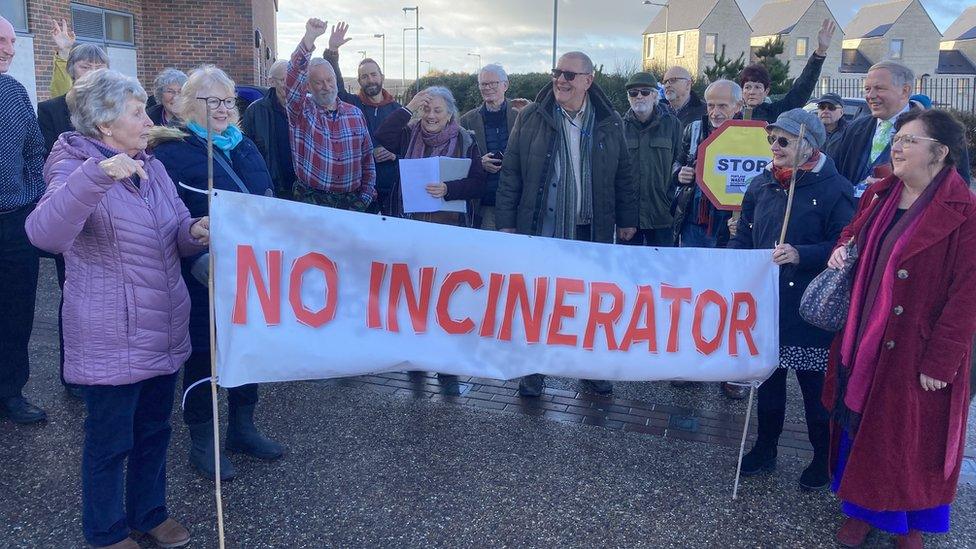Incinerator will 'hit carbon emissions targets'
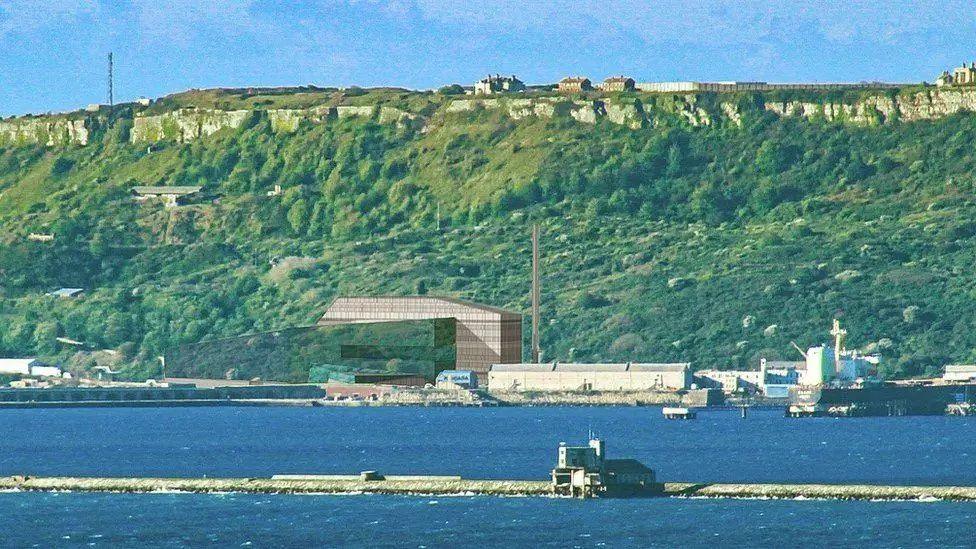
The energy recovery facility (ERF) is planned for industrial land at the edge of Portland Port.
- Published
A new waste incinerator on the south coast of England will hinder efforts to reduce carbon emissions in Dorset, its council leader and campaigners have said.
The facility, planned for land on Portland Port, was given the go-ahead by the government, despite initially being refused by Dorset Council.
Council leader Nick Ireland said it would also harm the area's tourism industry.
Powerfuel Portland said its plant would allow Dorset's non-recyclable waste to be "managed locally in a more sustainable way".
The developer had appealed a decision by the council to refuse planning permission for its proposed energy recovery facility (ERF) on industrial land at the edge of Portland Port.
Dorset Council had cited concerns over its visual impact, pollution and lorries.
Following a public enquiry in December, the Ministry of Housing, Communities and Local Government said on Monday that planning permission had been granted.
Powerfuel Portland said the £150m facility would have the capacity to process up to 202,000 tonnes of waste per year and create enough energy to power about 30,000 homes.
The chimney stack at the incinerator, in use 24 hours a day, 7 days a week, would stand at 262ft (80m) tall.
It said hazardous or clinical waste would not be burned.
In her decision to give the plan the go-ahead, Rushanara Ali, Parliamentary Under Secretary of State for Building Safety and Homelessness, said she agreed with the planning inspectorate that the environmental impact was within regulations.
She also said it would have "no harmful impact on the landscape and scenic beauty, or setting of the Dorset National Landscape" and "no injurious effect" on the Unesco Jurassic Coast World Heritage Site.
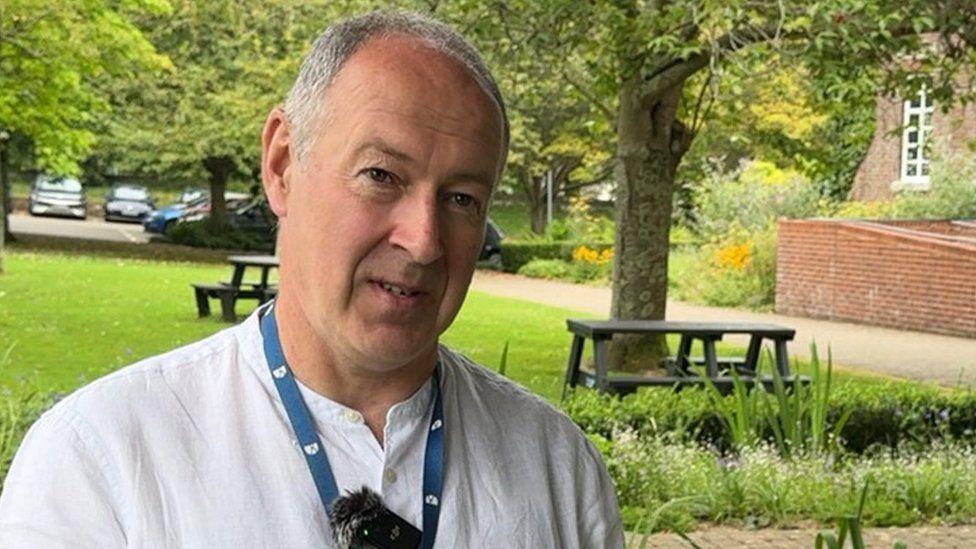
Nick Ireland said the plant was not needed
Leader of the Liberal Democrat-run council, Mr Ireland said there were "huge consequences" to the decision.
"Dorset Council has a net zero target - this effectively knee caps us.
"There is no imperative that requires the generation of electricity from burning rubbish - there are better ways of generating electricity.
"In the end, burning stuff generates CO2. It generates emissions and these emissions are going to be spewed out at the top of Portland."
He dismissed the benefits that it would create employment, saying job numbers would be "fairly low".
"But if you put that against the potential impact on the tourism industry - do you want to sit on Weymouth beach and look at a power plant?
"Generally, [the emissions] will be heading your way because of the prevailing wind directions."
South Dorset MP Lloyd Hatton has also called for the plan to be scrapped.
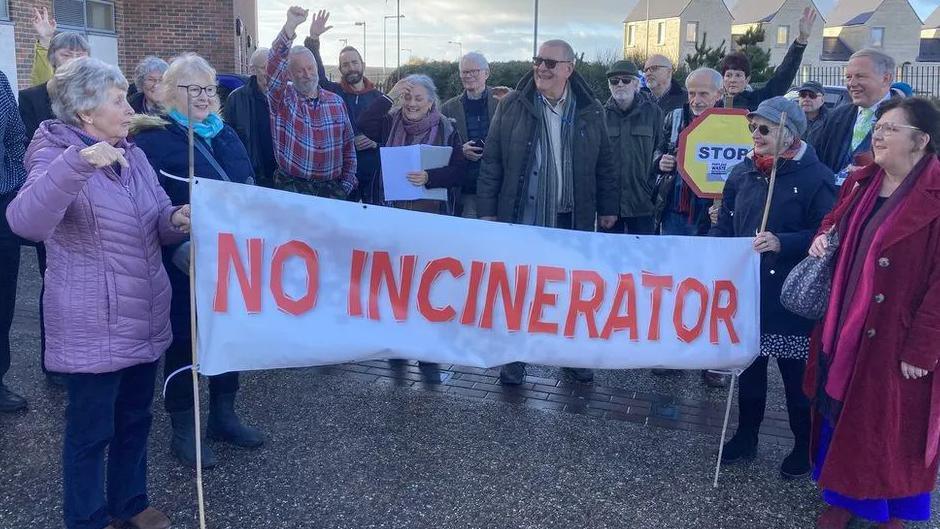
Campaigners have opposed the plans for the incinerator at Portland Port
The Stop Portland Waste Incinerator group, which had campaigned against the plan, said the government's decision was "beyond disappointing".
"Here on the Jurassic Coast, England’s only natural world heritage coastline tells mankind that climate change is an existential matter," a statement from the group said.
"Burning one tonne of waste emits one tonne of greenhouse gases. Building an incinerator at Portland Port and shipping waste here makes no sense at all," the statement said.
Campaign member Laura Baldwin said residents were "angered and distressed" by the government decision and the group was considering legal options to challenge it.
She called for a moratorium on all unbuilt waste incinerator permits.
"I struggle to understand Labour's move to build yet more new incinerators when cleaner, cheaper alternative energies exist and would have the support of the community," she added.
Portland Port previously said the power plant was "vital to this port’s future" by allowing it to offer shore power to docked cruise ships.
In a statement following the government announcement, it said it "welcomes the decision" to grant planning permission.
"Portland Port will work with Powerfuel as a commercial operator on the port estate, as it does with all other occupiers, to facilitate operations and take the next steps forward," it added.
Get in touch
Do you have a story BBC Dorset should cover?
You can follow BBC Dorset on Facebook, external, X (Twitter), external, or Instagram, external.
Related topics
- Published17 September 2024
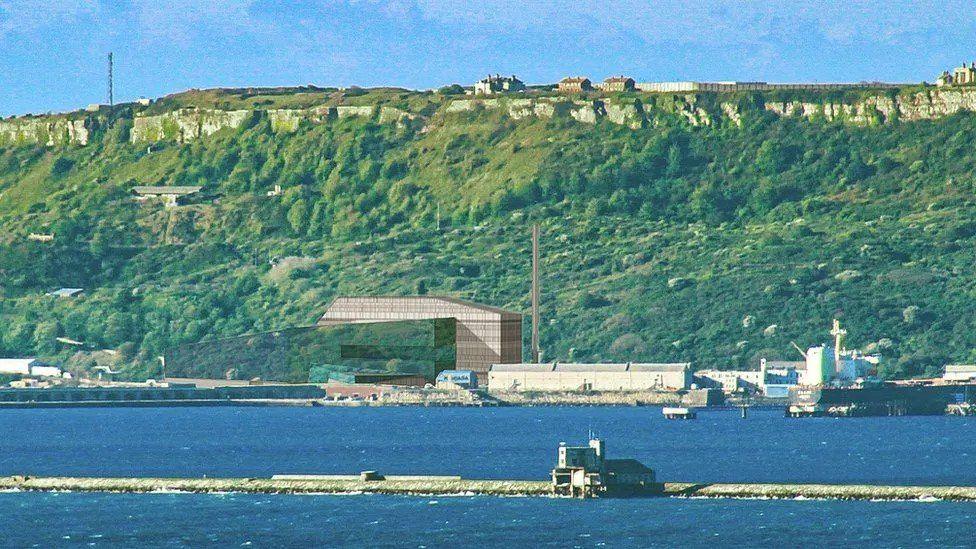
- Published15 December 2023
